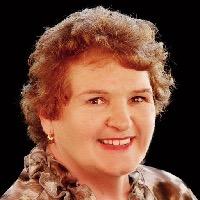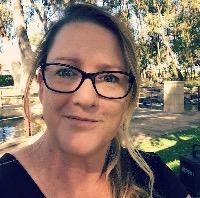The Celebrants Network Inc - BLOG
More Blog posts can be found in the Blog Categories to the right.
When the time comes that you need to engage a Funeral Celebrant, you may not be in the mindset to think of all the questions you'd like to ask... in this blog Celebrant Melanie Lawson has tried to make that as easy as possible for you...
Everyone has a story to tell, but all too often it is not one that is known to everyone who is closest to you. We all want to be remembered, for more than the money and possessions that we leave behind... today's blog is written by: Celebrant Roslyn McFarlane from Pakenham, Victoria.
Great idea for celebrants to e...
Life Lived Funeral & Memorial ...
Great blog
Not sure how to navigate choosing music for a funeral or memorial? Celebrant Leslie Ridgeway has got you covered...
"You'll Never Walk Alone"
Thanks
Amazing music
Memorialising people and events is an important part of grieving. When we mark our history through memorials we ensure that we will not forget and that there is something concrete for future generations to see, and learn about their past.
Flowers are beautiful but….
Flowers play a part in so many of our rituals and ceremonies. From adorning a wedding aisle, laid as a wreath to remember those who died in war, or given as a gift to a bereaved family, flowers can enhance a ceremony and evoke memories and emotions. However, there are many alternatives to the traditional use of flowers. Celebrant and regular blogger, Mel Lawson shares some fabulous ideas......
Online ceremonies cannot replace the face to face connection we often yearn for when someone we love dies. However, while the Covid-19 and travel restrictions are in place, this style of ceremony does allow us a means to connect and engage with family and friends, locally or overseas, in a meaningful way to share stories, laughter and tears together and to say farewell.
Today’s blog is written by Celebrant, trainer, author and all round lovely lady, Wendy Haynes.
Six Months to Live
Six Months To Live
Very Valuable Resource
The Australian government has set strict limits on numbers at funerals as part of the effort to contain the Coronavirus - COVID19. There is currently a limit of 10 people at any funeral – and that includes the celebrant and the Funeral Director’s staff. (Note: since this article was written in early April, the number has increased to 10 mourners plus celebrant and FD staff - these rules are likely to continue to change over the coming months)
Social distancing must be in place so offering comfort is difficult. We all understand the reasons for these limitations but they can be very hard for families, friends and colleagues to come to terms with.
Sonia Collins - Marriage and Funeral Celebrant, regular blogger and Chairperson of The Celebrants Network, takes a look at new ways to say our last goodbyes during this current pandemic.
update
Correction
Funerals and memorial services provide an opportunity for family members, friends and others to gather together to honour and remember the person who died while offering comfort and support to each other.
Planning a funeral or memorial service is a highly personal process, and your decisions will be shaped by your life experiences, your relationship to the deceased, what the deceased wanted or what you desire for yourself after you die, what you can afford, and a myriad of other factors.
Whether planned after a death occurs or beforehand arranging a funeral or memorial service often proves an emotional, and sometimes exhausting, process.
Hopefully this information will help to make that process a little easier to understand.....
thank you
Most Australians plan to " do " their BUCKET LIST when they retire......they plan the trips with great precision and off they go ! They want to do/see/achieve their list before they die or "kick the bucket".
But it is very difficult to get Australians to plan their final days, death or funeral.......it is simply " not nice " to have the awkward discussion with their family members , so when the time comes , surviving family are left floundering.
Most Australians do not even get the terminology correct...." I lost my mother last week" (really....how careless , did you find her, I wonder? ) or worse ...." My mother passed last week " (do you mean she fainted or died?)
And so - introducing Dying to Know Day (D2KDay) which wll be celebrated on 8th August.
Dying to Know Day has events scheduled across the country. They are designed to activate conversations and curiosity, build death literacy and help grow the capacity of individuals and community groups to take action toward end of life planning. You can find all the events on the D2KDay website
TCN supports the concept of D2KDay and has added a new section to our information about Loss and Grief ceremonies called Dying to Know Day. This section includes some useful links for exploring further and we would love you to send us questions and your requests for additional information so that we can build up further resources.
If you would like to talk more about planning a funeral, memorial or an end of life celebration why not call your local TCN funeral celebrant for ideas and information.
Have I lived a good, fulfilling life? Did I remember to sign my will? Who will look after my loved ones? Why me? I wish I'd lived, loved, laughed more. Are my affairs in order? Did I delete my browser history?
It's not the nicest of topics to talk about, but to those either on their way there soon or for those who just like to be prepared - this is an important conversation to have and it's important that we listen to the wants and needs of our loved ones.

If you're unsure how to go about starting this type of converstaion, there are people that can help you, like the organisation called: Death Over Dinner who recently featured on Ch 10's The Project who do exactly that - helping people to have that awkward conversation about your dying wishes.

None of these things will happen in your final moments though if you don't tell somebody about them.
You could also contact one of our wonderful TCN Funeral Celebrants to help you with ideas.
READ MORE about pre-funerals planning here.
* _________________________________________________________________________________ *
Thank you for joining us....
?? We would love it if you would let us know what you think ?.
There is a comment section ? at the bottom ⬇ of the blog for you to do just that.
?Click on the word "Comment" and go for it!
? Don't forget to subscribe ? to this blog - the "subscribe" button is up the top of the page ⇞⇞⇞ and the blog will magically ?? appear in your email inbox ?.
Also please feel free to share ? our blog on your social media ? so we can spread the love ?!
Please use this ? link: https://www.celebrations.org.au/blog when you share. ?
 ASK A CELEBRANT BLOG: What did we do? from TCN Civil Funerl Celebrant Jan Woolrych
ASK A CELEBRANT BLOG: What did we do? from TCN Civil Funerl Celebrant Jan Woolrych
As we all know ‘things happen’ and we have no control of these things no matter how well we plan. Yesterday on the M1 from the Sunshine Coast to Brisbane there was an accident which caused the M1 to be closed/blocked/diverted for around 3 hours. Hopefully those injured are on the mend. Our thoughts are with them and their families.
I was to conduct a Funeral Ceremony at Mt Thompson Crematorium (south of Brisbane) at 1.00pm and was travelling to Brisbane with the Funeral Director when we were caught in the traffic snarl.
What Music do You play?
Death of a loved one is a difficult and stressful time for families; there seems so much to arrange on top of the emotional turmoil of losing a loved one.
A funeral is a time of loss but also a time to commemorate life and music can and does play a vital role within the service to expression feelings, to enunciate emotions, prompt memories and to offer messages of hope and eternal love. For centuries music has formed a very important part of rituals and ceremonies and by using music in a meaningful manner can assist family and friends with the grieving and mourning process.
Once you have spoken to your Funeral Celebrant and developed the Order of Service, what poems, verses or prayers you have selected to achieve the mood you wish for then consider the music. What music do you feel will reflect the life of your loved one, what will honour them and commemorate their life in a fitting way.
The music chosen is a very personal choice; you may wish to play a song loved by the deceased person, or a song that will bring hope or offer inspiration to the mourners, a song that will lighten the mood and bring smiles to all. Music can be a selected that will remind family and friends of time spent with the departed, or because they will evoke memories of happy times spent together or because the deceased just ‘loved that song.’ As I wrote earlier: a very personal choice.
Funeral songs fall into mainly three categories – Hymns, classical or popular music. The lyrics of a song can also help to remind us of a loved one, or describe the life of the deceased or the emotions being felt by all those present. Listen to the lyrics, or read them and see if they express the emotions, feeling or mood that you want to achieve with the music.
If you are having difficulties consult your Funeral Celebrant, they are experienced and they can help you with suggestions to make your Funeral service a ceremony that reflects the life of your loved one in the manner you want.
What makes a Funeral meaningful?
For centuries funerals have helped us to say goodbye, to honour, to celebrate and remember those we love. Funerals can bring together families and friends who offer loving support in our time of greatest need and can offer comfort to those mourning.
A funeral is made up of different parts that when combined make an incredible meaningful experience for you, your family and friends. It is how you, your family and friends, with the assistance of your Celebrant, combine these components that will make the funeral meaningful.
The major components of a funeral are; music, readings, symbols, committal and eulogy.
Music – music forms an important part of many social rituals and can be used to access feelings and using music meaningfully in a service helps us to embrace our loss and can form a vital part of the grieving and mourning process.
Readings – can be selected to capture the unique life and beliefs of the person who has died and can also acknowledge the reality of death; it is quiet appropriate to include humour here if it reflects the personality of your loved one.
Symbols – the main symbols used in funerals are flowers, candles, photos and the coffin. Flowers represent love and beauty and placing flowers on the coffin is a way to honour the deceased. The flame of the candle represents the spirit and for some it also represents life’s continuation beyond death. The presence of the coffin serves as a focus for mourners and helps them recognize and embrace their loss and pain. Family will often place items on the coffin that relate to the life of the deceased, such as tools of a trade, a fishing rod, war medals, a photo, or sporting memorabilia from their favourite team.
Eulogy – this if often the part that stays with the family and friends long after they have left the funeral and most likely the part to be talked about later. Don’t be afraid to ask others to assist you in sharing their memories that can be included. The eulogy acknowledges the unique life and personality of the person who has died and affirms the significance of that life for all who shared it.
Committal – In a chapel service the Committal is the final goodbye – it is the time we honour the dead with respect, honour and dignity. The curtain closing on the coffin brings a necessary feeling of finality to the service and can be powerful to the family and friends and can assist in the healing process. If the Committal is graveside it is the final goodbye as you watch the coffin being lowered and it can also be a powerful moment - a moment of quiet reflection, a time to say goodbye.
While each faith and culture have their own variations on the elements of a funeral and incorporating them together with those listed above will make the funeral meaningful while respecting the values and traditions of a particular faith or culture.
It is difficult to say goodbye to those we love but options of how we do this are increasing. Have you thought of an Honouring Ceremony? In our modern society the options of where and how we say goodbye are ever changing. I recently officiated at a ceremony honouring a much loved mother and grandmother - it was beautiful.
The Honouring Ceremony was held in a beautiful open chapel within the Cemetery – what a beautiful location with the wind gently caressing the cheeks of her family (it felt like her spirit passing by) and the birds singing in the surrounding trees. The family decorated the area with symbols in a beautiful tribute to their mother and grandma.
The Ceremony started with a Candle Lighting in her memory and in memory of all others who had passed away due to cancer as this was very important to the family. All her grandchildren participated in the Honouring Ceremony doing what they felt comfortable with – their love for the Grandma was obvious.
Before the Committal a verse ‘The Rainbow Bridge’ as recited, it was so appropriate and read beautifully by her Granddaughter. After the Committal the family and friends covered the coffin with beautiful colourful rose petals – she was in her rainbow.
It was an intimate yet dignified honouring and goodbye to a beloved lady in the manner that she wished and in a manner that they found comfort with.
Subscribe to our ASK A CELEBRANT BLOG
Post by Meg L’Estrange
Celebrants & Celebrations Network Australia Member
Melbourne Victoria http://meglestrange.com.au
http://meglestrange.com.au
Can a funeral be fun?
You bet!
For some families this is the best way to honour the person they have lost.
Bo: Bo was a larger than life personality and stories of his antics abounded.











Great article
How to manage disgruntled fami...
Managing emotions